-
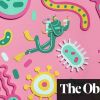 +16 +1
+16 +1Unlocking the ‘gut microbiome’ – and its massive significance to our health
Scientists are only just discovering the enormous impact of our gut health. Rebecca Seal reveals how it could hold the key to everything from tackling obesity to overcoming anxiety and boosting immunity
-
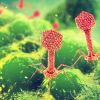 +19 +1
+19 +1We found more than 54,000 viruses in people's poo — and 92% were previously unknown to science
You could say there are a 'crapload' of viruses in the human gut. Luckily, most of these do not attack our cells, but instead feed on bacteria.
-
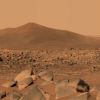 +14 +1
+14 +1Researchers Create Soil Catalyst to Make Farming on Mars a Reality
Perchlorate, a dangerous chemical compound, is abundant in Martian soil. A new catalyst could help remove this contaminant on Earth, and beyond it.
-
 +23 +1
+23 +1Scientists May Have Finally Found a Key Mechanism Behind Irritable Bowel Syndrome
It can begin with abdominal pressure from a bloating belly. This can escalate into cramping pain and nausea. Or, a sudden urge to flee to the toilet right now.
-
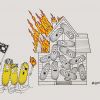 +14 +1
+14 +1Bacteria fight by destroying each other’s biofilms
In bacterial battles, there is more than just direct killing. Some bacteria even challenge their prey by destroying their bacterial houses. We could learn a lot from these microscopic combats for our own fights against bacterial superbugs.
-
 +19 +1
+19 +1Kombucha was just the beginning. This designer wants to create a bacteria-based food industry
The experience of eating out with friends looks very different these days, if it happens at all, due to social distancing measures. Designer Marek Głogowski, a recent graduate of Design Academy Eindhoven, wants to change the actual food you eat too.
-
 +4 +1
+4 +1Scientists find 'secret molecule' that allows bacteria to exhale electricity
For mouthless, lungless bacteria, breathing is a bit more complicated than it is for humans. We inhale oxygen and exhale carbon dioxide; Geobacter — a ubiquitous, groundwater-dwelling genus of bacteria — swallow up organic waste and "exhale" electrons, generating a tiny electric current in the process.
-
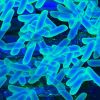 +3 +1
+3 +1A bifidobacterial protein that can reduce inflammation in COVID-19 found by a RUDN geneticist
A geneticist from RUDN University studied the effect of Bifidobacterium (intestinal bacteria) on the inflammatory process and discovered that their surface protein is capable of stopping excessive or uncontrollable inflammation, like the one observed in COVID-19 patients. A fragment of this protein can be used as an anti-inflammatory medication when treating coronavirus and other diseases. The results of the study were published in the Anaerobe journal.
-
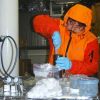 +3 +1
+3 +1Researchers revive bacteria from the era of the dinosaurs
Far from the life-sustaining light of the sun, the deep sea floor appears barren and desolate. Its appearance, however, belies a thriving bacterial ecosystem that may contain as much as 45% of the world’s biomass of microbes. This ecosystem is fuelled by what is known as marine snow—a steady shower of small, nutrient-rich particles that fall like manna from the ocean layers near the surface, where photosynthesis takes place.
-
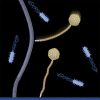 +4 +1
+4 +1Peering into the secrets of phages to see how they kill bacterial superbugs
A research collaboration involving Monash University has made an exciting discovery that may eventually lead to targeted treatments to combat drug-resistant bacterial infections, one of the greatest threats to global health.
-
 +2 +1
+2 +1Buildings have their own microbiomes – we're striving to make them healthy places
Architects and building engineers strive to create safe, productive places where humans can live and work. We have developed complex codes, regulations and guidelines to achieve goals such as structural safety, fire safety, adequate ventilation and energy efficiency, and to anticipate extreme scenarios such as 100-year floods. The question for our profession now is whether and how the 100-year viral pandemic will change architectural design and building operations.
-
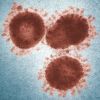 +18 +1
+18 +1What Is Meat’s Role In Antibiotic Resistance?
Professor Dame Sally Davies, England’s chief medical officer is sounding the alarm on antibiotic resistance, claiming it could kill ten million people per year, effectively wiping out humanity. Plastic pollution and antibiotic use in animal agriculture could be to blame. But what is antibiotic resistance and what role does meat play in it?
-
 +1 +1
+1 +1Bacteria Resistant Materials for a Germ Free Office
Through the right use of germ-resistant surfaces - and some proper cleaning techniques - your office can stay clean and healthy even during cold & flu season.
-
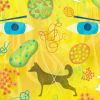 +12 +1
+12 +1How Microbiomes Affect Fear
New studies help to explain how microbes in the gut can shape a host’s fear responses.
-
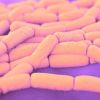 +20 +1
+20 +1Your Irritable Bowel Issues Could Be Caused by a Little-Known Gut Condition
Your gastrointestinal system contains about a hundred trillion bacteria. That may sound scary, but it's actually beneficial because these bacteria help with digestion, immunity and other important functions.
-
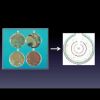 +18 +1
+18 +1Current and Future Clinical Applications of the Microbiome in GI Disease
Exploring the microbiome in GI diseases.
-
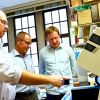 +14 +1
+14 +1Researchers unlock potential to use CRISPR to alter the microbiome
Researchers at Western University have developed a new way to deliver the DNA-editing tool CRISPR-Cas9 into microorganisms in the lab, providing a way to efficiently launch a targeted attack on...
-
 +16 +1
+16 +1Transplanting poop can be beneficial—swapping vaginal fluids may be even better
In the afterglow of successful fecal transplants, researchers are now sniffing around vaginal fluids for the next possible bodily product to improve health—and they’re roused by the possibilities.
-
 +4 +1
+4 +1Why you shouldn't worry about the bacteria in your sponges
Remember that study about the 'dangerous' bacteria hiding in your kitchen sponge? Not so fast
-
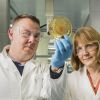 +33 +1
+33 +1There are bugs in your lungs. Should you try to keep them healthy?
Up until just a few years ago, scientists thought your lungs were sterile. They were wrong. In the lungs of healthy people live a diverse range of bacteria, fungi and viruses.
Submit a link
Start a discussion




















